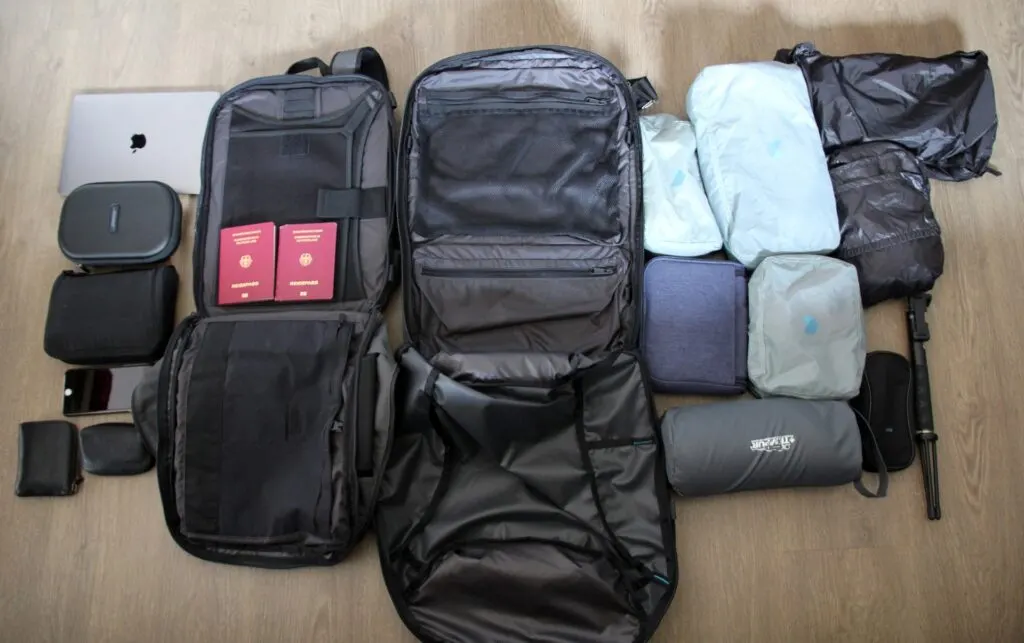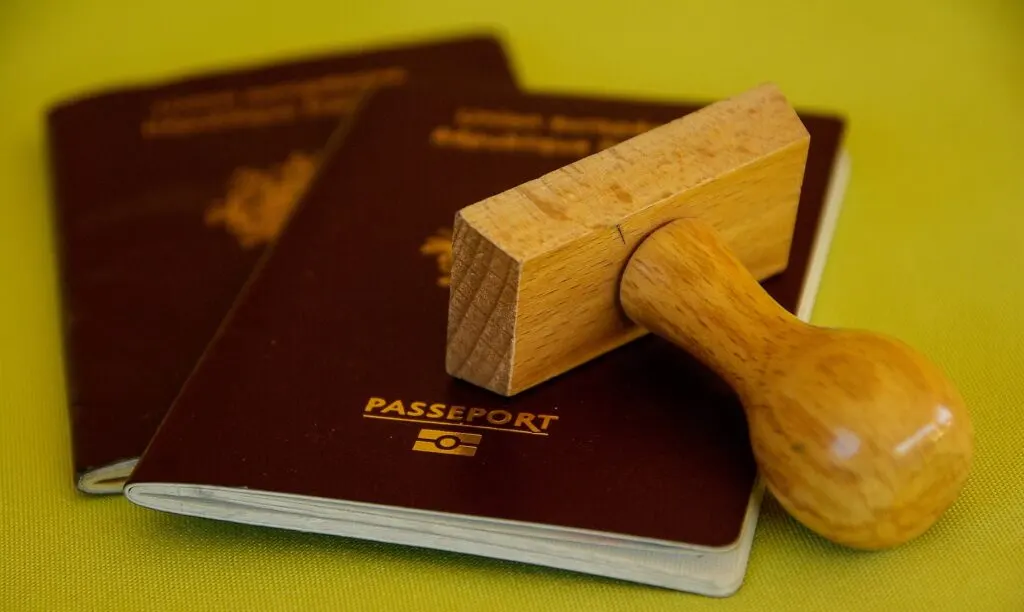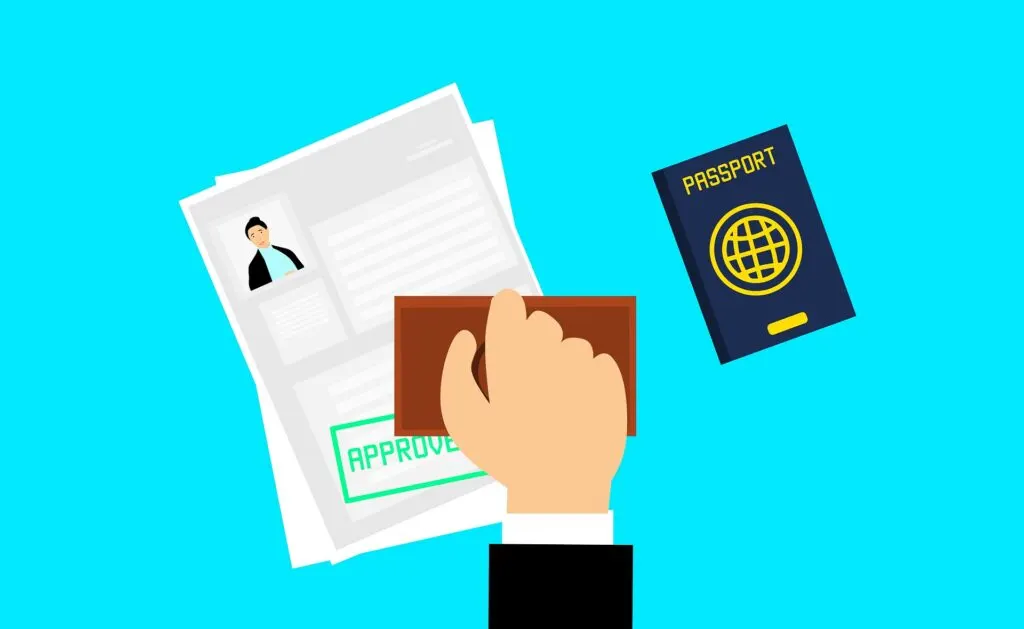We promise you that after reading this blog, you’ll feel confident that you have all the necessary information to make your dream of studying in New Zealand a reality.
Our objective is that after reading this blog, you should not have any doubts regarding the documentation required for applying for a New Zealand Student Visa application.
Introduction

Studying abroad can be an exciting and life-changing experience, but the process of getting there can also be daunting and overwhelming. There are many things to consider, from selecting the right institution and course to securing a place to live and obtaining a student visa. For those looking to study in New Zealand, the process of obtaining a student visa can be particularly confusing, especially if you’re a first-time student.
This blog will help you stay organized and ensure you have everything you need to get a successful outcome for your visa application.
This explanation is based on Dec 2022 (the latest version of the Checklist issued by Immigration New Zealand).
Before we proceed to the checklist, a few important points may be noted.
Translations
- Providing English translations of supporting documents means INZ can process your application faster.
- You should provide a certified translation of all documents if they are not in English.
- You should also provide both English translations of supporting documents and copies of the original untranslated documents so INZ can process your application faster.
Travel plans

Do not finalise your travel plans until you have been granted a visa.
When to apply
Apply for your student visa at least 8 weeks before your intended travel date. If you want to apply early, INZ recommends approximately four months before intended travel, but no earlier (to avoid your documents becoming out of date).
Immigration advice
To give immigration advice, people must be licensed or exempt from licensing (such as an education agent who is outside New Zealand advising on student visas only). If you receive immigration advice as part of your student visa application, or someone has assisted you by explaining, translating, or recording information on the form, you must declare this in your application.
The Checklist

So, without much ado, let’s begin with the items on the checklist. Keep ticking!
1. An offer of place from a New Zealand education provider

An offer of a place refers to an official letter or document issued by an educational institution in New Zealand (also called an education provider), which confirms that the student has been accepted into a specific course or program of study. This offer of a place is a crucial document in the process of obtaining a student visa in New Zealand, as it provides confirmation of enrolment and your eligibility for the visa application. The offer of a place typically includes details about the course or program of study, the fee, the length of the program, the start and end dates, and any other relevant information related to the student’s enrolment.
2. A copy of the identity pages in your current passport

This should be the passport you intend to use to travel to New Zealand. For enabling INZ to assess your immigration history, you should provide a copy of each page of your current passport with a visa label, exit stamp, entry stamp, or cancellation stamp on it. If these are in a previous passport, provide copies from that passport. If your travel has only been recorded electronically, provide a summary of your international travel history.
3. Tuition fees evidence

You can pay your tuition fee in full for one year or one programme (whichever is shorter). This fee can be paid before you apply for your student visa so that you can provide the tuition fee receipt to INZ well in advance. You do not have to use the AIP route and can pay your tuition fees upfront for faster processing.
Alternatively, you can also pay the tuition fee after your student visa is Approved-in-Principle (AIP). In that case, you will be required to pay the tuition fee and supply the tuition fee receipt to INZ within the due date mentioned in the AIP letter. The most important thing to remember is that you pay your tuition fee from the EXACT SAME FUNDS that you submitted with INZ along with your application.
If you are exempt from paying the tuition fee, then you will be required to submit supporting evidence that confirms this exemption.
The evidence can be a receipt of payment or a letter from your education provider confirming you have paid your tuition fees.
4. Funds for living costs

This is the most important point of the checklist. It is more often than not that the application is declined due to dissatisfaction over the explanation of funds. Therefore, it is strongly recommended that the services of a professional should be engaged.
You will need NZD $20,000 per year of tertiary, English language, or other non-school study or $1,667 per month if your study will be shorter than 1 year.
If you are studying in compulsory education (years 1-13 at a school), you will need NZD $17,000 per year or $1,417 per month if your study will be shorter than 1 year. Accommodation costs that have been pre-paid to the school can be deducted.
To demonstrate that you have access to the required funds, you can submit the following evidence.
The money to support your first year of study (or first programme) must be readily available. For example, cash in bank accounts that you are able to use to support yourself while you are in New Zealand. Credit cards are not acceptable. A bank balance without supporting evidence/history is not acceptable. A single source of funds is easier to assess than multiple sources.
Here are a few examples of evidence:
- bank statements showing transactions and/or sources. If they show any large deposits, or if you opened the bank account recently, explain where this money has come from and provide supporting evidence to show the source of money from one bank account into another.
- certificates for fixed deposits that have been held for at least 6 months
- an education loan sanction letter from a nationalised or multi-national bank
(Only if they are from nationalised or multi-national banks with security against fixed assets that belong to you or your financial guarantor or sponsor. You must provide evidence of how you will repay the loan, and a loan sanction letter that states the security, moratorium period, interest payable, repayments, and details of the security accepted for the loan).
- a letter from your employer that confirms the position, the length of your employment, and your salary/wage
- tax returns showing income earned
- recent business tax returns and bank statements — if you are self-employed
- evidence that shows you own any assets you get income from, like a rental property — such as tax payments on income
- evidence of a scholarship
- a financial undertaking by a non-New Zealander — use the Financial Undertaking for a Student (INZ 1014) form
Evidence can include copies of the identity pages in their passport, their birth certificate, or national identity document. Government-issued relationship certificates, citizenship certificates, household books, marriage certificates.
(INZ may only accept a financial guarantor if they are your immediate family member (wife or husband, parents, brothers, sisters, grandparents, parents-in-law), and you can prove your relationship to them. INZ only allows one sponsor or financial guarantor).
- sponsorship by a New Zealander, a New Zealand residence class visa holder, or a New Zealand organisation — use the Sponsorship Form for Temporary Entry (INZ 1025)
- Evidence you have enough money to leave New Zealand.
Gold loans, KCC loans, chit funds, post-office held funds, volatility/mutual funds, funds in co-operative societies, bonds, property sales and agricultural income are NOT ACCEPTABLE to INZ.
5. Evidence of your health and character

Depending on how long you plan to stay in New Zealand and the countries you have previously spent time in, you may also need to:
- visit a panel physician for a chest X-ray or a medical examination to show that you are healthy.
- provide a police certificate (or certificates) — and a certified translation if it is not in English — to show you are of good character.
6. A Statement of Purpose (SOP)

A statement of purpose is a critical component in the New Zealand Student Visa application process. It portrays a student’s academic and professional goals, and demonstrates their motivations for studying in New Zealand. It can help the immigration officer understand the student’s commitment to their chosen field of study and their career plans. As such, it is important to approach the creation of this document with care and diligence, ensuring that it accurately represents the student’s aspirations and abilities. It is also pertinent to mention that you may be required to provide supporting evidence of whatever you claim in your SOP. For example, if you write that you have been doing volunteer work then a certificate or a letter from the concerned organisation should be enclosed.
We can assist you with focused guidance on how to prepare your own SOP by accentuating your credentials in a meaningful manner.
7. Your Immigration History

A copy of any letters you have received for declined visa applications for other countries and the reasons why you were declined. This enables an immigration officer to assess your bona fides.
8. Evidence of your past education and training

As evidence, you can provide a qualification certificate, an academic transcript, confirmation of current enrolment (if you are currently studying), confirmation of online learning attendance and progress, if you have studied with a New Zealand provider while you have been outside New Zealand (for example, remote delivery).
9. Evidence of your work and employment history

You can provide an employment contract or letter from your employer that includes your job responsibilities, salary slips, salary deposits shown on bank statements, income tax returns, and pension or provident fund payments.
10. Evidence of your English language ability

If your study has an English level entry requirement then you should provide the same evidence that you provided to your intended education provider to show you meet the English language requirements for enrolment in your planned course should be included with your application.
Note: If the evidence is a test result from the Pearson Test of English (PTE), INZ will need access to confirm your result.
Conclusion
The information we’ve shared with you above is just to give you an idea of the required documentation for your student visa in New Zealand. But, here’s the thing – navigating the visa process can be a little overwhelming and complicated, especially if you’re doing it for the first time. That’s why it’s always a good idea to seek some professional help. And that’s exactly why we highly encourage you to seek the assistance of a licensed immigration adviser. Trust us, having a knowledgeable guide by your side will make your visa application journey so much easier and more successful. And, it won’t cost you much.

For all your New Zealand visa-related queries, you can contact Vineet, your friendly Licensed Immigration Adviser through:
Email: vineet@visaadvice.info
WhatsApp: +64 223006101
Fill up a small form: https://visaadvicenewzealand.co.nz/contact/
Follow us at
Website: https://visaadvicenewzealand.co.nz/
Facebook: https://www.facebook.com/VineetNZ/
LinkedIn: https://www.linkedin.com/in/vineet-bhardwaj-533647144/
Instagram: https://www.instagram.com/visaadvicenz/
YouTube: https://youtube.com/c/VINEETBHARDWAJNZ
Read our blogs: https://visaadvicenewzealand.co.nz/blogs/
Reach us


